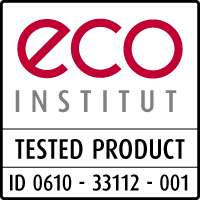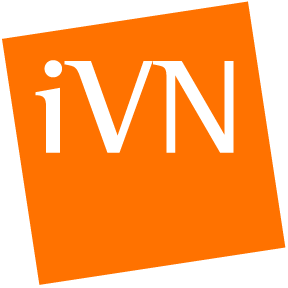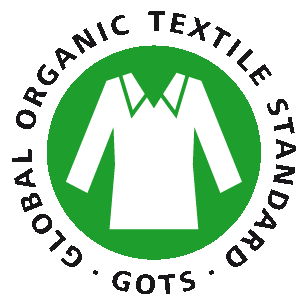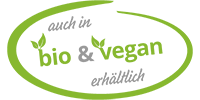Certificates

Since the 1980s, the eco-INSTITUT Cologne has been dealing with pollutant-analysis of construction materials, furniture and mattresses. In the early 1990s, Frank Kübart of the eco-INSTITUT met Dietmar Wagner on the 1. Organic Cotton Conference in Cairo. Together they decided to create an association for the purpose of testing natural mattresses in a meaningful way which has led to the foundation of the QuL (quality association for environmentally-agreeable latex mattresses e.v.) in 1995. The basic approach was to find strong test criteria that would go beyond those of the usual wishy-washy tests and distinguish products that we would buy ourselves. Since then, the eco-INSTITUT tests all of our futons based on those criteria and with the strictest test parameters for about 240 pollutants. Futons of our DX Futon series were the first products for which the new certificate was handed out for. Since 2010 we carry out the regular certification straight with the seal of the eco-INSTITUT, whose current version can be found here or on their website.

The International Association of Natural Textile Industry / IVN has been active in the area of implementing concrete criteria for textile organic products since 1989 and is the biggest association of its kind. Around 120 members - primarily manufacturers - voluntarily dediciate themselves to the cause which is so much more important than most consumers understand. In regards to organic cotton, it is less about one's own health (except for articles for babies) but rather about preserving and improving our natural world. On the one hand, there is the monocultural cultivation of cotton (around 20 million metric tons/year) which causes great environmental damage, on the other hand there is the social harm caused by the slave-like work conditions. Working alongside IVN is more about honorable engagement than about lucrative marketing.

Among the variety of lables for ecological and / or ethical tests, the GOTS (Global Organic Textile Standard) distinguished itself in the 2010s and has become the leading lable for organic cotton of controlled biological cultivation worldwide. The GOTS was founded by the IVN in 2002. We are member of the IVN, because we want to support that type of work. Our textiles are all certified based on the criteria of the GOTS or IVN BEST, just as the cotton fibres marked as organic ("Bio") found inside our futons are.

In the 2000s, we created the lable Alpine Country Quality (Alpenland-Qualität) for wool. The amount of reports of the devistating conditions in animal husbandry on gigantic sheep farms overseas increased and we wanted to set an example that makes the good, clean origin of our wool clear. Since 1989 we buy our wool from Austria, where it is produced by small sheep farm cooperatives. Shepherds with small flocks of - usually Merino - sheep who move from meadow to meadow and shear their sheep once in the spring as it has been done since time immemorial. The purity of our wool matches that of organic wool of controlled biological animal husbandry according to chemical analysis.

Our futons of the DX series have been produced in virtually the same fashion since 1988, because it's simply good. Naturally, you can also order those futons with organic cotton with a simple click, although the cover is always in organic quality regardless. The same applies to the Shiatsu futons. All of our futons are also available in vegan variations, which can also be chosen by a single click. In that case, we replace wool with cotton and horsehair with coconut fibres - without charging extra. For real vegans there is not much of an alternative, but the original quality is slightly reduced due to the lack of the good Merino wool which keeps the futon hygienic and the tension high. To compensate for that, vegan futons should be well aired and put in the sun every once in a while to prevent bacterial growth (wear) through UV rays.

Deshi, or rather Desi, means something along the lines of 'Indian' / 'from India' in Indian (not only, but primarily). So Deshi cotton means nothing more than cotton of Indian - usually northern Indian - origin. Seeing that cotton in India is mainly cultivated naturally, Deshi cotton is considered to be particularly pure, which, however, can only be certified through appropriate tests. Deshi cotton is also a particularly long-stapled / long-stranded, similar to the organic cotton used by us. We are the owner of the brands DESHIplus (for many years) and DESHIplus bio. The history behind this is that in the late 1980s, a provider tried presenting Deshi cotton as the one and only high quality cotton, which was neither true nor decent. As a result, we developed the DESHIplus quality, which actually did provide a particularly good quality. But at last, not enough consumers were interested in it which led to the discontinuation of the brand. Nowadays, we have two types of cotton of very high quality in form of our regular and our organic cotton, both tested for pollutants - one inexpensive, the other of extra high quality - meaning that a third type would lead to more confusion rather than to an additional benefit. Should the interest in futons and material quality increase, we will reintroduce DESHIplus and DESHIplus bio. However, it won't increase the high quality of our futons significantly further.
Copyright 2017 Futonwerk. All rights reserved.





